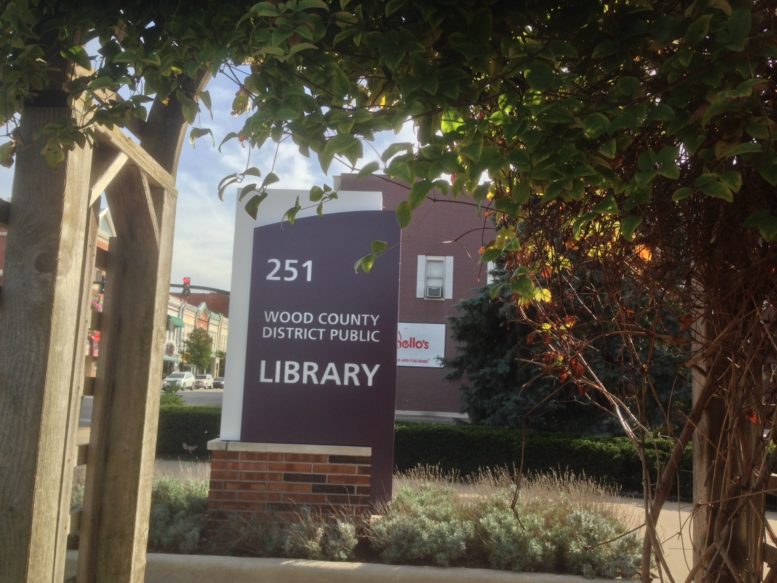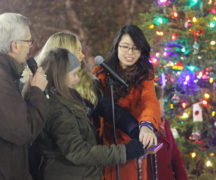By DAVID DUPONT
BG Independent News
Librarians love to say “yes.” Service is the name of the game. But they have their limits.
Michael Penrod, Wood County District Public Library director, shared some of those limits with the Board of Trustees Monday. He said he wanted to start giving the trustees some insight into the professional lives of librarians.
And tax season, when folks flock to the library for forms and information, is an apt time to talk about limits.
The Internal Revenue Service has been supplying fewer and fewer paper forms to libraries as it pushes taxpayers to file online. Some folks are resisting, Penrod said.
A librarian can show a patron where the form they ask for is, or where to find I online and even help them print out the form from the IRS website. They cannot, however, tell the taxpayer whether that really is the form they need, or whether they are filling it out properly.
For that, Penrod said, they need to consult a tax professional. That’s what he does.
The library staff can direct patrons to non-profit services that can give help them do their taxes.
It’s not only taxes. Michele Raine, the assistant library director, says the advent of DYI divorces can be a strain on library staff.
The library again can point the way to where a patron can find legal information, but not tell them what information they should be searching for. They can show them how to use Ohio Revised Code, but can’t advise them what section applies to whatever problem they have.
“People are looking for reassurance we can’t give them,” Raine said. “That’s the bottomline.”
Penrod said a woman came in who had just been diagnosed with pancreatic cancer. He brought her reliable sources and lent an ear. But could not give medical advice.
Raine said that the staff who are notaries public recently went through a training during which they were cautioned that because of librarians’ reputation for helpfulness that they may be targeted to sign questionable papers. They were warned to be vigilant.
Penrod said he once was helping a man copy pages from an out-of-print reference book until he realized the man’s intent was to copy the entire book, have it bound, and then sell it.
The staff in the Children’s Place love to have young patrons come in looking for books or taking part in the numerous programs the library offers. However, they draw the line at babysitting a child while the parent is at work.
And if someone’s looking for a painting contractor, library staff can help find a list of all the local businesses. That staff member, though, is forbidden from recommending an uncle, even if that uncle is the best in town. That would be a serious ethical breach, Penrod said.
The list presented by Penrod also addresses issues of confidentiality. Custodial parent can find out what their dependent children have checked out. They can’t tell someone what their neighbor has checked out, even if the patron is waiting to read it.
This becomes tricky with split families, Penrod said. The non-custodial parent cannot find out what the child has burrowed. In some cases, a child will have two library cards, one for each household.
That, the library director said, was another reason for getting rid of fines for overdue books. Some children were not allowed to borrow books because one parent wasn’t making sure they were returned.
And when to it comes to getting books into the hands of children, that’s definitely a time when librarians want to say “yes.”





